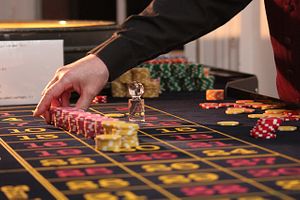In 2012, Xi Jinping assumed the post of general secretary of the Chinese Communist Party (CCP). As media from around the world focused in on the new leader of the world’s most populous country and second largest economy, Xi turned his attention to the pressing problems within the CCP. “The metal itself must be hard for it to be turned into iron,” he said, alluding to his plans to crack down on corruption within Party ranks.
Within weeks, Xi launched what would become one of the most expansive anti-corruption drives in modern Chinese history. The Party’s corruption watchdog, the Central Committee for Discipline Inspection, reported recently that more than 1.5 million officials have been punished.
The initial crackdown targeted high-ranking military officers, former national leaders, private and state company executives, as well as many of Xi’s political rivals. But in August 2017, the CCP issued official rules on what it called “irrational” overseas investments, which served as a direct threat to the lucrative Chinese offshore gambling market.
In China’s special administrative region of Macau, gambling tourism makes up around 50 percent of the economy. Macau, commonly referred to as the “gambling capital of the world,” brought in almost six times Las Vegas’ gambling revenue in 2018.
Most of those who gamble in Macau are from mainland China. Desmond Lam, a professor at the University of Macau and author of The World of Chinese Gambling, wrote in 2009, “Today, eager Chinese players can be seen all around the world, their behaviors in casinos quite distinct from that of Western gamblers.”
Lam noted that Chinese gamblers take high risks when playing games. His observations help to explain why Chinese gamblers contribute so heavily to casino revenues.
In mainland China, gambling and the promotion of gambling is illegal and the ban is heavily enforced. In 2015, around 100 people were arrested for operating an international online gambling ring that had more than 1 million members and receipts totaling $78.8 billion.
A few months later, another 500 people were arrested for their alleged involvement in a country-wide sport betting ring. It was in October 2016 though, when 19 employees from Australia’s Crown Casino were arrested in China and charged with the promotion of gambling that Xi’s war on gambling made headlines around the world.
Outside of Chinese jurisdiction, Chinese high-rollers spend billions on tables in Australia, Saipan, Cambodia, Laos, the Philippines, and other destinations. Many of these high-rollers keep their money offshore, investing in property or shares. Others, however, could possibly be laundering billions of dollars back into China every year, often via criminal organizations.
Late last month several Australian news outlets — The Age, the Sydney Morning Herald, and Channel Nine News — published a damning investigation into links between Australia’s Crown Casino, Asian organized crime, and members of Xi Jinping’s family.
The investigation revealed that in 2016 Australian federal agents searched a private jet at Coolangatta airport on suspicion it was involved in international money laundering. They didn’t find enough evidence for an arrest, but the people on that jet were worth billions and of major interest to Australian authorities.
The agents were there to investigate a man named Tom Zhou, who fled to Australia upon learning that he was being investigated by Chinese authorities for serious financial crime. Zhou is an international criminal fugitive and is the subject of an Interpol red notice, meaning he is supposed to be arrested immediately if he crosses an international border.
Also onboard the jet, though, was Ming Chai, a cousin of the most powerful man in China: Xi Jinping himself. It is now alleged that Chai, who is a VVIP (very, very important person) at Crown Casino, is a business partner of Tom Zhou.
Zhou is also known to have links to Asian organized crime — the kind of crime Xi is cracking down on.
Part of Xi’s crackdown on money laundering restricts citizens from leaving the country with more than $5,000. However, leaked documents from Crown Casino, obtained by The Age and the Sydney Morning Herald, suggest Zhou has been moving multiple times more than the official limit placed on ordinary Chinese citizens.
Australian officials now say they are investigating several Chinese -Australian social and business groups operating in Australia under Zhou.
Zhou and Chai were business partners through companies registered in Hong Kong and Australia that are suspected of being set up simply to move large sums of money out of China to Australia, according to the officials.
Australian investigators are now looking into the source of Chai’s money and his relationship with Zhou. From Canberra’s perspective, the issue goes beyond normal white-collar crime: authorities believe CCP figures may be attempting to launder money through Australian casinos to finance foreign influence groups, such as those operated by Zhou. The investigation is seeking to determine if Chai was involved in those efforts.
A spokeswoman for China’s Foreign Ministry, Hua Chunying, dismissed the report as “gossip,” adding, “They tried to smear China with groundless accusations based on some rumors.”
The Australian government passed new laws in June restricting Chinese Communist Party influence groups in Australia, which also evoked a critical response from Beijing.
While there is no evidence to suggest Xi had any involvement in his cousin’s activities abroad, the question of whether he knew of the activity remains unanswered. Another question is whether Xi will continue to crackdown on the massive Chinese offshore gambling market.
Joshua Mcdonald is an Australian photographer and journalist.

































